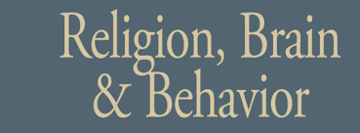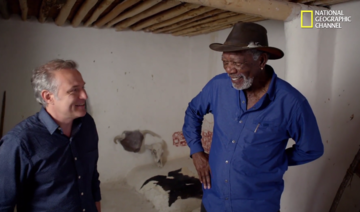The World History Lab
The World History Lab
The World History Lab studies patterns in world history quantitatively and over long timescales, from the Neolithic Revolution until the present day. The flagship project of our Lab Group is the Seshat Global History Databank. Here we bring together anthropology, history, archaeology, digital humanities, and data science. In addition, to develop Seshat as the premier home to test theories with historical data and use Seshat’s potential to study the deep drivers of today’s societal diversity, and to establish the usefulness of Seshat for policy makers worldwide. We have published a suite of high-profile publications and addressed audiences of law makers and policy makers, including at the G20.
Key Questions
Learn more about our approaches to the key questions guiding this research.
In order study patterns world history quantitatively, many methodological challenges need to be overcome, including how to avoid the problem of cherry picking historical evidence to test historical theories, how to assemble transparently robust samples of historical data, how to balance polities for have rich information with polities for which data are sparser or more disputed, and so on. Our Lab is tackling these and other methodological problems as part of the Seshat Global History Databank project in collaboration with the AHRC-funded project Data/Culture aimed at building sustainable communities around Arts and Humanities datasets and software at the Alan Turing Institute. Our efforts to develop new methods have been supported by a series of large grants from the Economic and Social Research Council and the European Research Council.
One of our main areas of interest is the role played by religion and ritual – including beliefs in moralizing supernatural punishment and differing levels of religious tolerance - in the evolution of more complex societies throughout history. Our aim is to leverage the Seshat methodology to test with historical data theories about modes of religiosity and their relationship with folk traditions. This work is currently supported by a grant from the Templeton Religion Trust and the Wayfarer Foundation. In addition, a large grant from the FCDO enabled us to the lay foundation for our work on the role religious tolerance plays in creating stable cohesive societies.
Our aim is use our quantitative research on world history to develop diagnostic tools for policy makers seeking to improve the world today. For example, the work on the role religious tolerance plays in creating stable cohesive societies has been picked up by lawmakers from a range of countries in the Global South and has fed into several G20 events.
Events
Outputs
-
Turchin P., Whitehouse, H., Gavrilets, S., Hoyer, D., Francois, P., Bennett, J., Feeney, K., Peregrine, P., Feinman, G., Korotayev, A., Kradin, N., Levine, J., Reddish, J., Cioni, E., Wacziarg, R., Medel-Gleason, G., Benam, M. (2022) Disentangling the Evolutionary Drivers of Social Complexity: A Comprehensive Test of Hypotheses, Science Advances, 8(25): eabn3517 -
Turchin, P., Whitehouse, H., Larson, J., Cioni, E., Reddish, J., Hoyer, D., Savage, P. E., Covey, A., Baines, J., Altaweel, M., Anderson, E., Bol, P., Brandl, E., Carballo, D. M., Feinman, G., Korotayev, A., Kradin, N., Levine, J. D., Nugent, S. E., Squitieri, A., Wallace, V., François, P. (2023) Explaining the rise of moralizing religions: a test of competing hypotheses using the Seshat Databank, Religion, Brain & Behavior, 13(2):167-194
-
Whitehouse, H., François, P., Savage, P. E., Hoyer, D., Feeney, K. C., Cioni, E., Purcell, R., Larson, J., Baines, J., ter Haar, B., Covey, A., Turchin, P. (2023) Testing the Big Gods Hypothesis: a review and ‘retake’, Religion, Brain, and Behavior, 13:2: 124-166.
-
Turchin, P., Hoyer, D., Korotayev, A., Kradin, N., Nefedov, S., Feinman, G., Levine, J., Reddish, J., Cioni. E., Thorpe, C., Bennett, J. S., François, P., Whitehouse, H. (2021) Rise of the War Machines: Charting the evolution of military technologies from the Neolithic to the Industrial Revolution, PLoS ONE, 16(10): e0258161
-
Mullins, D. A., Hoyer, D., ..., Whitehouse, H., & Turchin, P. (2018) A Systematic Assessment of ‘Axial Age’ Proposals Using Global Comparative Historical Evidence, American Sociological Review, 83(3): 596–626
-
Turchin, P., Currie, T. E., Whitehouse, H., François, P., et al. (2018) Quantitative Historical Analysis Uncovers a Single Dimension of Complexity That Structures Global Variation in Human Social Organization, Proceedings of the National Academy of Sciences, 115 (2): e144–51
-
François, P., Manning, J. G., Whitehouse, H., ..., & Turchin, P. (2016) A Macroscope for Global History: Seshat Global History Databank, a Methodological Overview, Digital Humanities Quarterly, 10(4)
- Hoyer, D., Bennett, J. S., Whitehouse, H., Francois, P., Reddish, J., Davis, D., Feeney, K. C., Levine, J., Holder, S. L., Turchin, P. (2024). Crises Averted: How a Few Past Societies Found Adaptive Reforms in the Face of Structural-Demograhic Crises, Cliodynamics
-
Whitehouse, H. (2019) Is religion good or bad for humanity? Epic analysis delivers an answer, New Scientist
Peter Turchin | Elites and the Path to Political Disintegration | The Realignment Podcast
Harvey Whitehouse | Excerpt from The Story of God with Morgan Freeman | National Geographic








